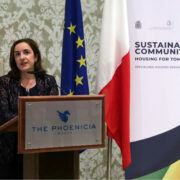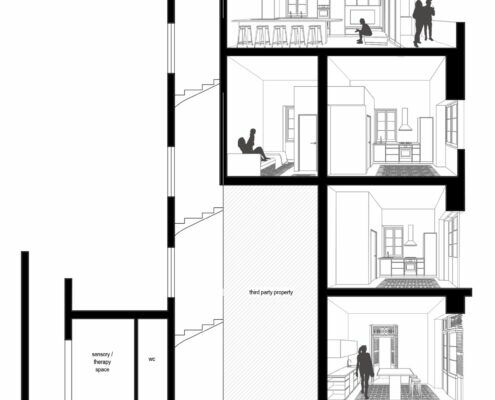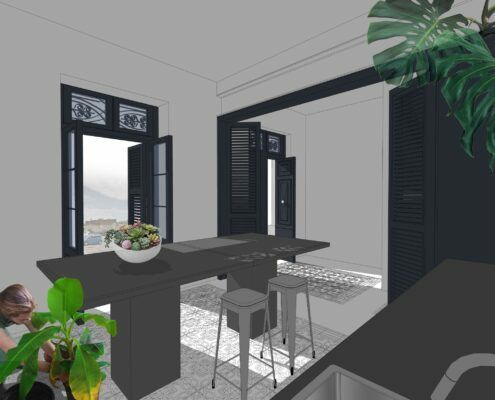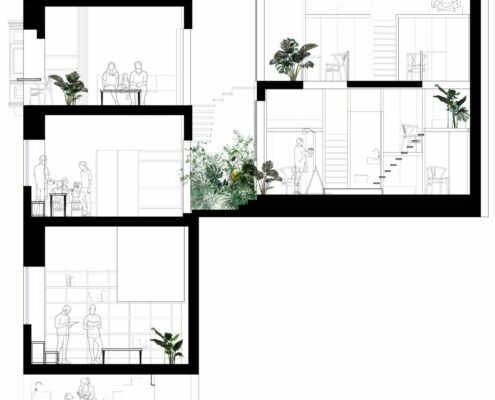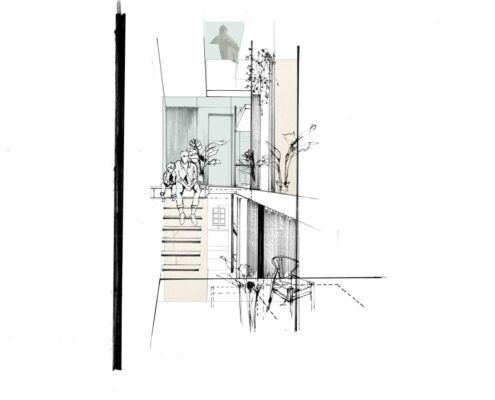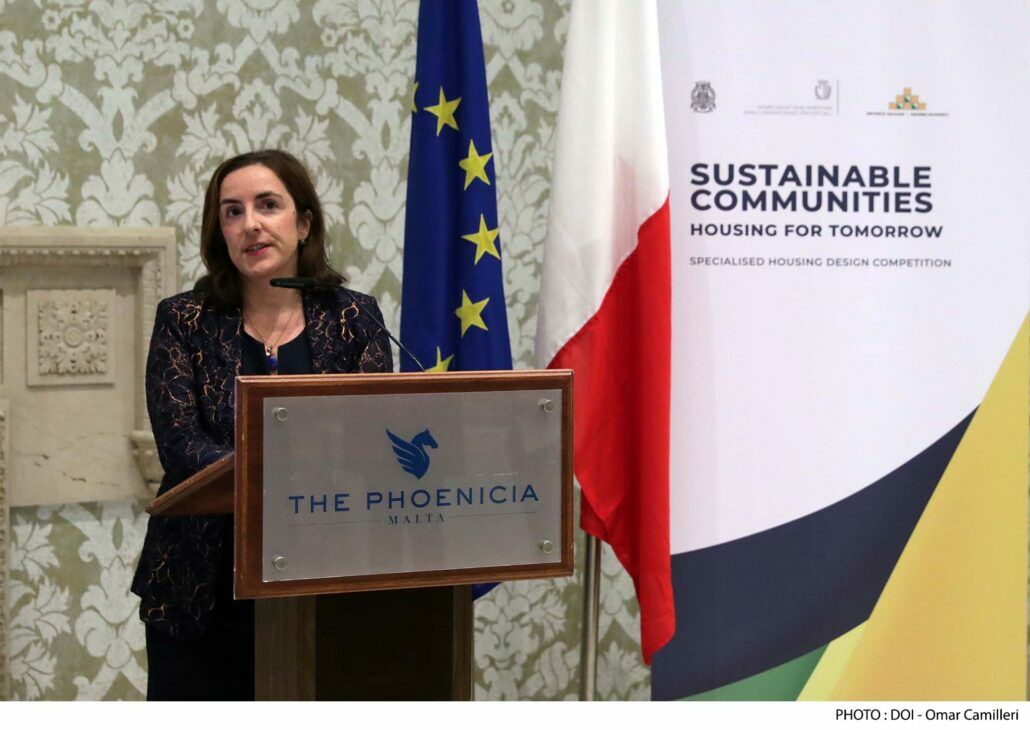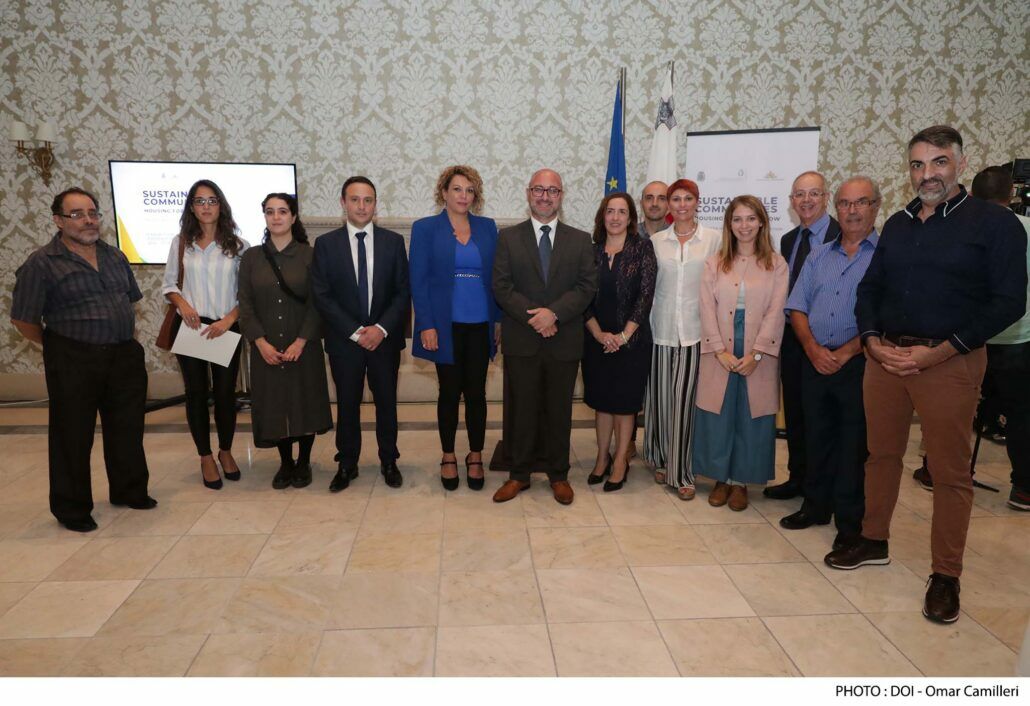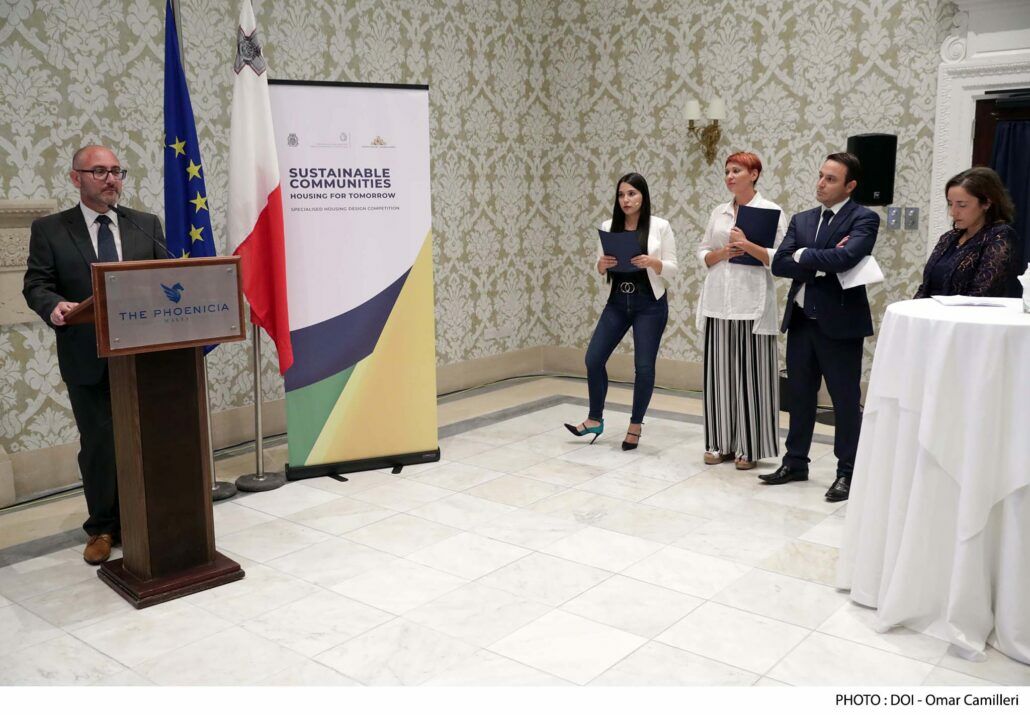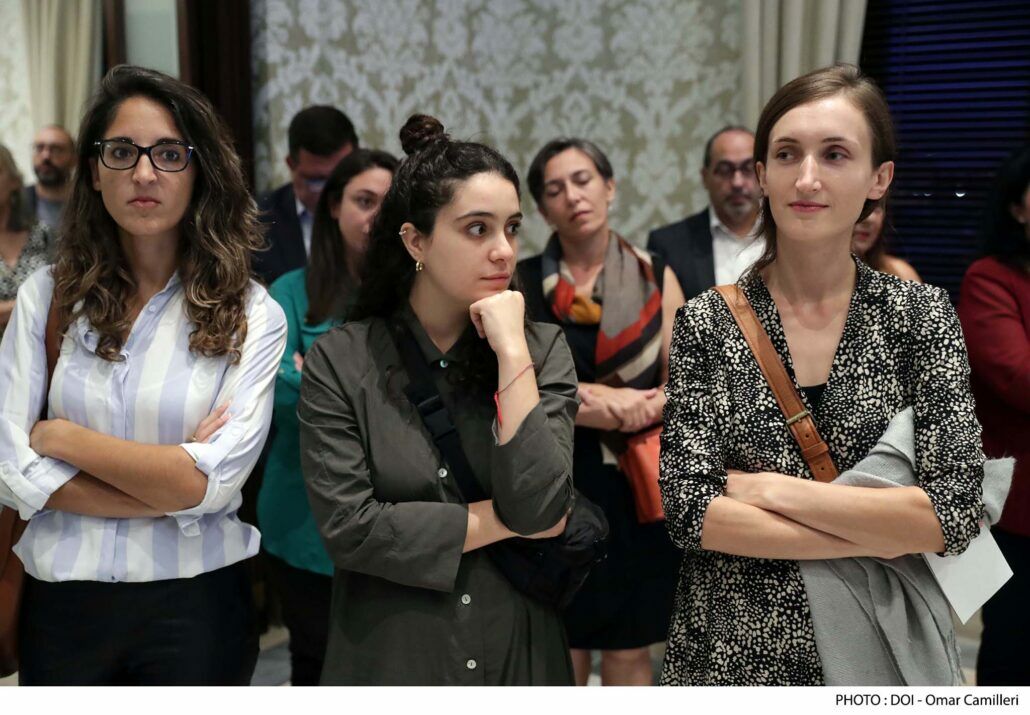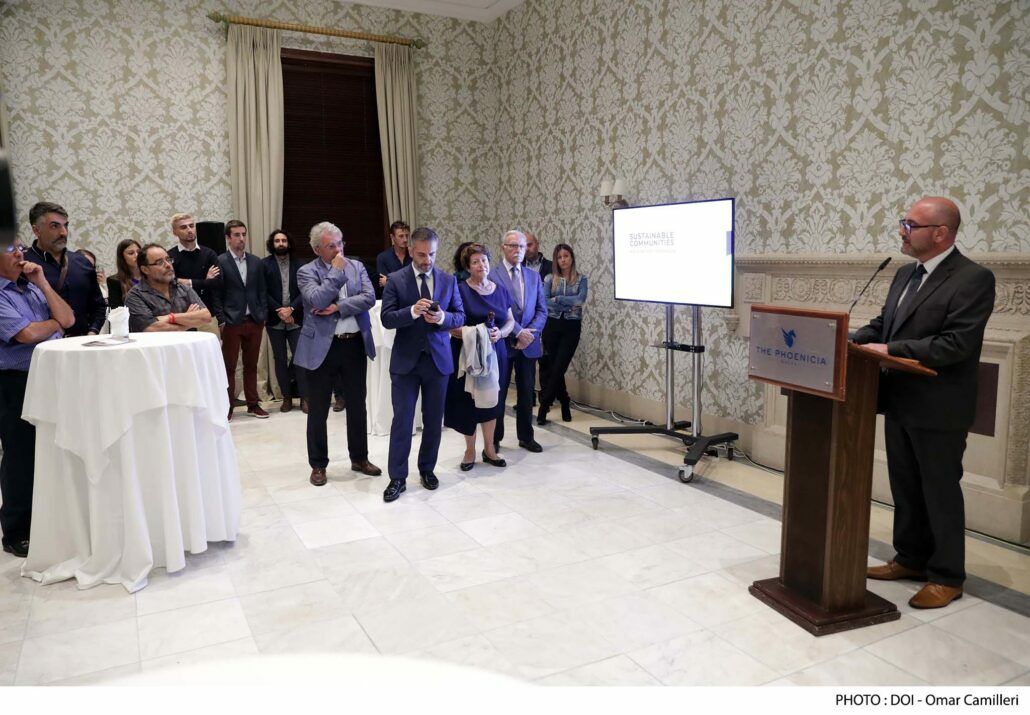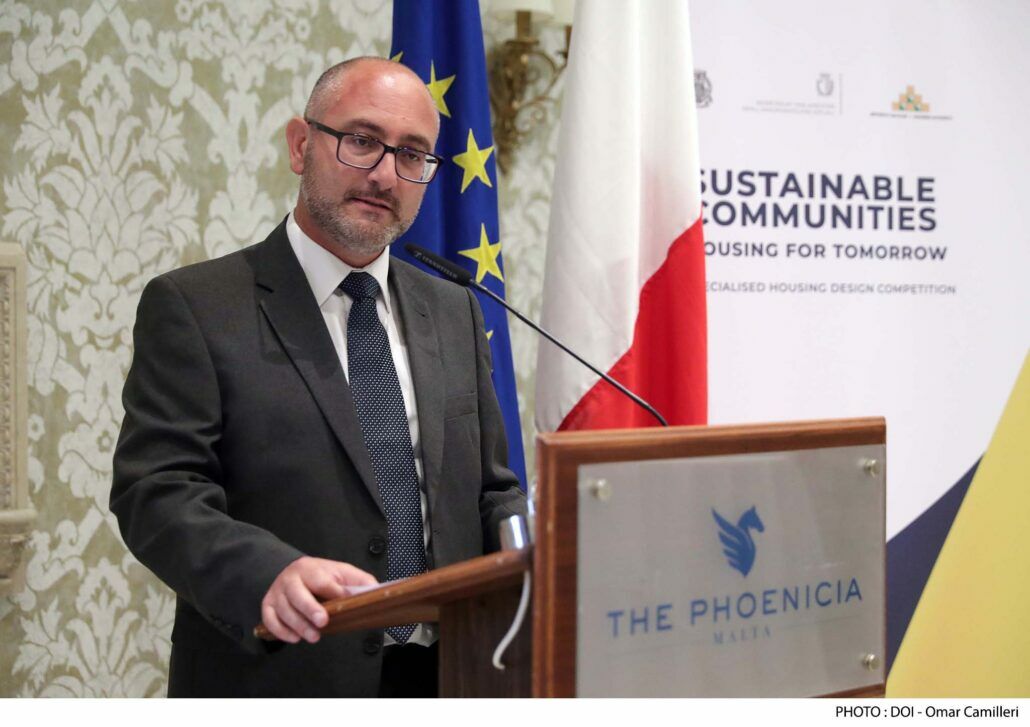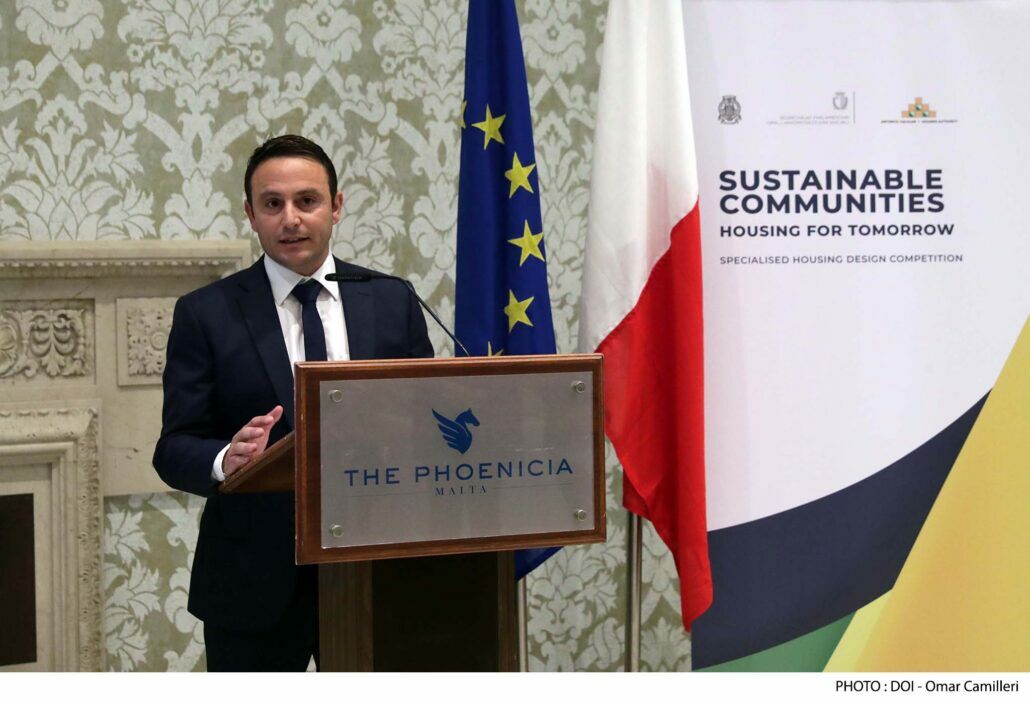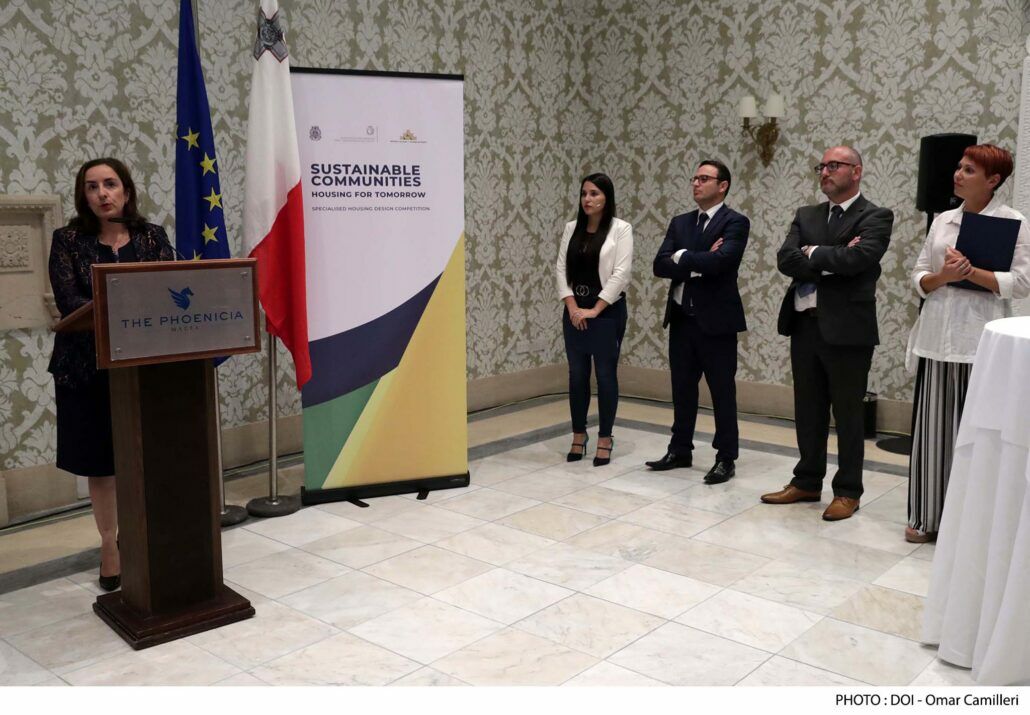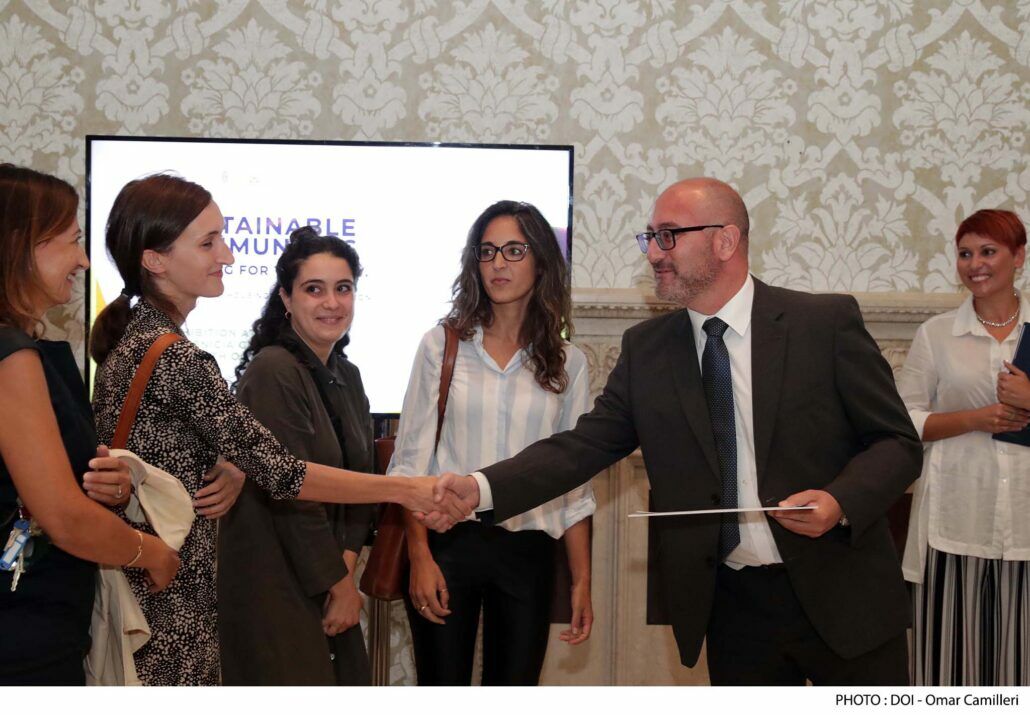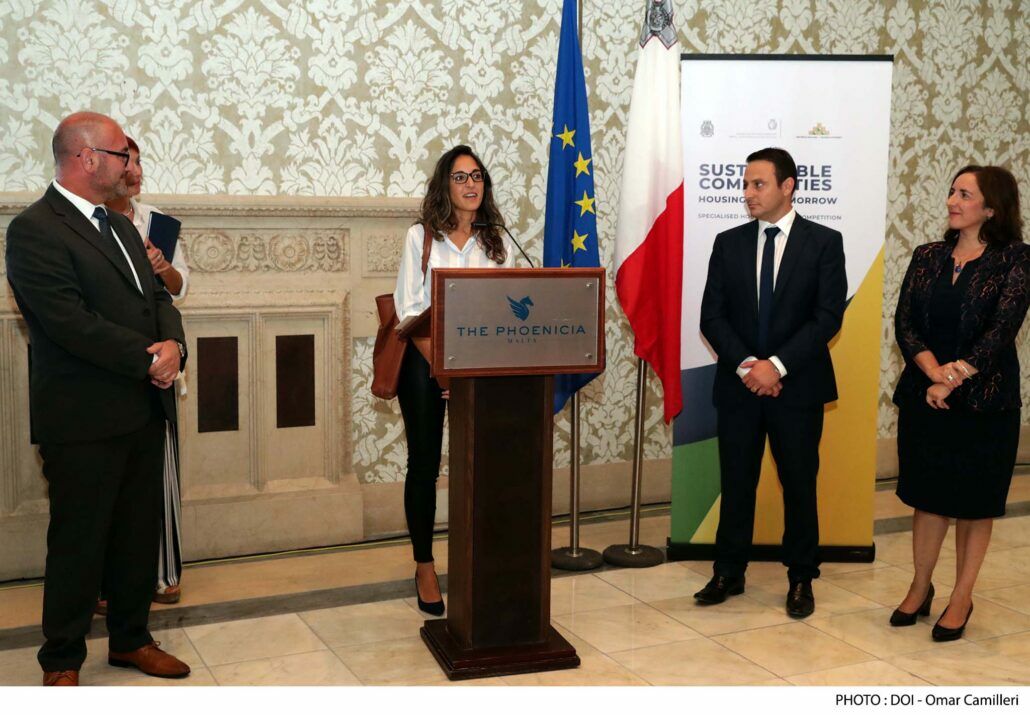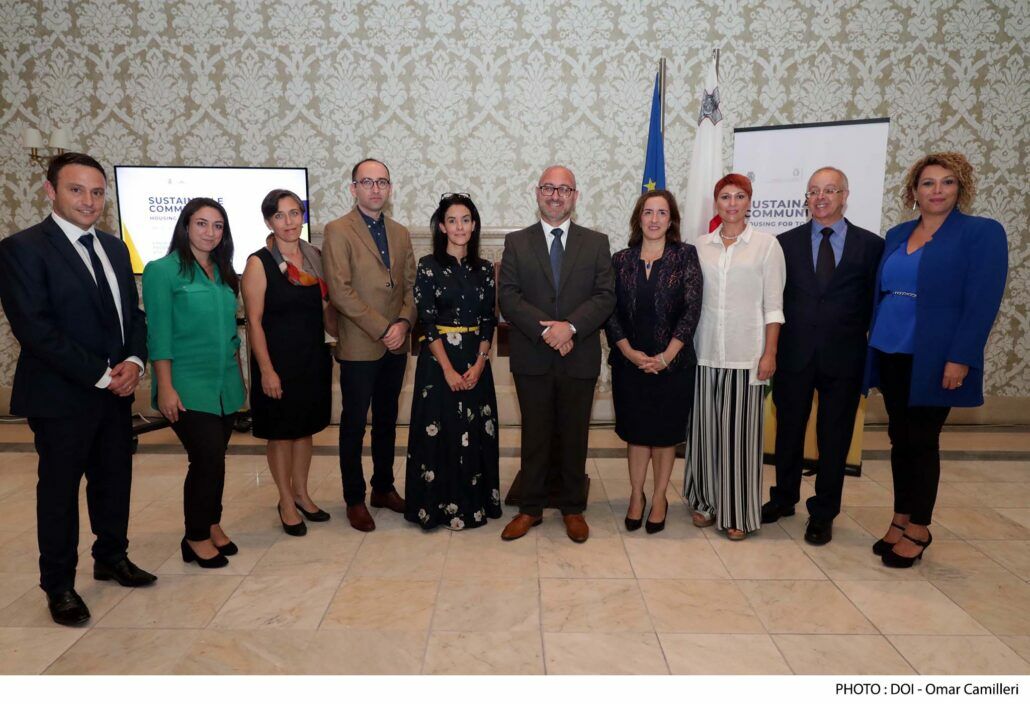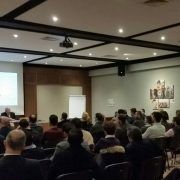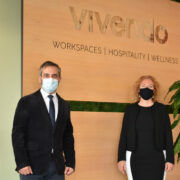PR 29/19 | Sustainable Communities – Winners of design competition announced
The winners of the first design competition organised by the Kamra tal-Periti were announced on Monday 7th October 2019. The competition was organised as part of the policy “Sustainable Communities: Housing for Tomorrow”, spearheaded by the Housing Authority and the Parliamentary Secretariat for Social Accommodation.
Following a call for applications, two NGOs were selected by the Specialised Housing Board to take forward their proposals. Mid-Dlam ghad-Dawl proposed a project which focuses on the provision of supportive housing and therapeutic services to prisoners and their families, with an aim to create a homely domestic and child-friendly environment which supports integration and which emulates real life scenarios. The Richmond Foundation’s project aims to offer support to homeless mothers with mental health problems and their children, through an integrative approach towards housing and service provision which will enable them to achieve independent living.
The NGOs were then allocated a dilapidated property each, one in Birgu and one in Bormla, and the Kamra tal-Periti launched the design competition, inviting professionals to put forward their proposals for the rehabilitation of these two buildings in line with the briefs of the two NGOs. Seven proposals were submitted for consideration by the jury, which was composed of Dr Rachael Marie Scicluna representing the Specialised Housing Programme Board, Ms Mariella Mendez Cutajar representing the Specialised Housing Programme Board, Perit Jacques Borg Barthet and Perit Edward Said representing the Kamra tal-Periti, Prof Alex Torpiano representing the Faculty for the Built Environment, Dr Andrea Dibben representing the Faculty for Social Wellbeing and Mr Caldon Mercieca representing Valletta Design Cluster.
The jury was very impressed with the high calibre and attention to detail that each project was given by all submissions which, in one way or another, engaged seriously with the core criteria of the competition in terms of innovation, conceptual strength and response to the brief. This made the selection process more laborious but also exciting.
The winning proposal for the Richmond Foundation project was titles “Home: An Active Threshold for Belonging” and was submitted by Local Office. The jury selected this project for the sense of home embedded in the overall design. Motherhood, daily domestic rituals, and children’s needs informed the core design. The depth of research and awareness to mental health considerations, the regard for process pre- and post-occupancy and the overall attention to social, functional and budgetary aspects were exemplary. The user-centred design was brought out through a sensitive interplay between the self and domestic daily rhythms, with architectural specificity. Overall, the design proposal demonstrated a strong social research basis, and a careful balance between the private individual spaces and those fulfilling the needs of the community was handled sensitively. The provision of sanitary facilities, the texture of materials and colour schemes within the separate apartments was also considered important, as was the emphasis on the collaborative workshop both during the design stage as well as during use.
“Birgu: The Ordinary House” by openworkstudio was the winner for the project to be led by Mid-Dlam ghad-Dawl. The jury selected this project in view of how it transforms the ordinary into the extraordinary through architectural innovation, contemplation and in-depth research. Structural constraints were transformed into a creative and conceptually stimulating design, which breaks away from the traditional setting of supported accommodation. The domestic dimension was carefully choreographed along lines of visibility which maximise space but also offer a sense of privacy and homeliness. Additionally, the use of participatory parity was embedded in the process of building this home, where prisoners will have the possibility to construct their own furniture – a process which in itself instils hope and aspiration to a brighter future. By keeping the retrofitting of the building to a minimum, this project was able to focus on the intimate by opening up spaces that have the potential to heal.
During the award ceremony, Perit Simone Vella Lenicker, President of the Kamra tal-Periti, stressed the importance of design competitions as a means to select projects that are to be executed through public funds, since this process ensures the best quality of design. This first competition organised by the Kamra tal-Periti was particularly important because it will ensure that two vulerable groups within society will be able to benefit from dignified, safe and qualitative accommodation in the coming years, in line with the Kamra’s mission to ensure a quality built environment for the betterment of society.

